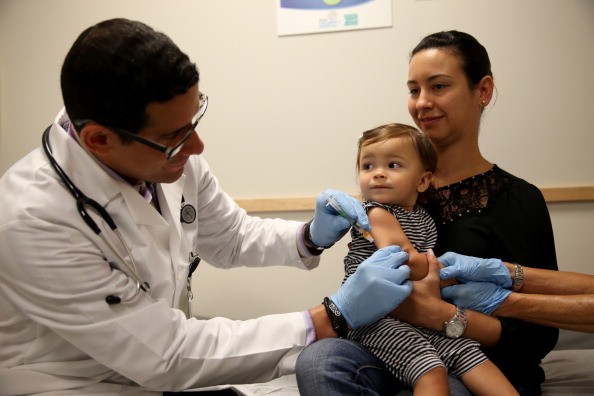
Many pediatricians and family physicians give in to parents who do not want to follow the standard schedule of vaccinations for children. They do this even though they believe these decisions on the part of the parents puts children at risk for diseases such as measles and whooping cough.
Doctors who do this said they do it to help build a rapport with families and to avoid losing them as patients, according to results from a survey published in the journal Pediatrics. The survey was conducted in 2012, before the ongoing measles outbreak that started in late 2014. The survey reached out to 534 primary care physicians to ask them how many parents in their practices had asked to delay one or more vaccinations in their toddlers.
Ninety-three percent of doctors said that they had been asked to delay vaccines at least once in any given month. One in five doctors said that 10% of the parents in their practices asked them to delay vaccines. One third of doctors said they went along with the request often or always while another third said they went along sometimes. The survey also found that counseling hesitant parents took a lot of time-10 to 14 minutes when the average doctor visit is 18 minutes long.
The U.S. Centers for Disease Control and Prevention has created a schedule of vaccinations against 14 diseases for children under age 6. The schedule calls for about 29 injections, and children may receive several vaccinations in the same doctor visit.
Some doctors who agree to delay certain vaccinations draw the line with parents who refuse all vaccinations. A pediatrician in California, the state where the measles outbreak began and the one hardest hit, has sent out letters to parents who refuse all vaccinations asking them to find another pediatrician. The pediatrician, Dr. Nivedita More, says that she will allow parents to delay some vaccine so long as they are willing to have their child receive all the shots.



